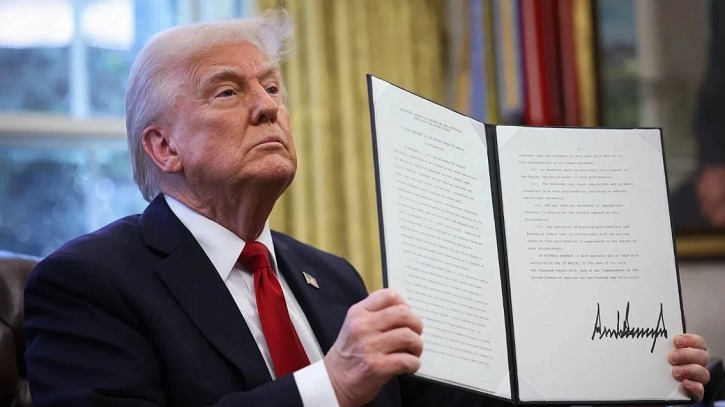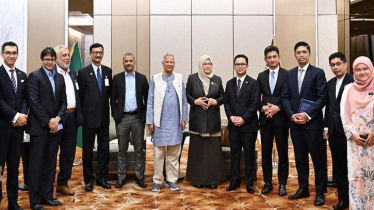
The United States has reduced the countervailing duty on Bangladeshi imports from 35 percent to 20 percent, according to an executive order signed by President Donald Trump on Thursday, local time.
This decision followed final-round negotiations held in Washington, D.C., between a delegation from Bangladesh and the Office of the United States Trade Representative (USTR).
A statement from the Press Wing of the Principal Advisor confirmed the new tariff rate and highlighted that President Trump announced revised tariff rates of up to 41 percent on imports from 70 countries just before concluding a series of bilateral trade agreements. Countries were given until August 1 to finalize these agreements.
According to the statement, these agreements were not limited to tariff adjustments but also addressed structural reforms aimed at correcting trade imbalances. The Trump administration linked these reforms to broader economic and national security concerns. As part of the process, participating countries were asked to make firm commitments to purchase U.S. goods, thereby reducing the U.S. trade deficit.
Given the broad scope of the discussions, the negotiation process was complex and time-intensive. Tariff reductions were not solely contingent on lowering duties on U.S. exports but were also based on each country’s willingness to eliminate non-tariff barriers and address trade and security concerns in a meaningful way.
The executive order clearly states that the final tariff rate for each country was determined based on the depth of their commitments in these areas.
Bangladesh was granted a 20 percent tariff rate, which is in line with its major apparel sector competitors such as Sri Lanka, Vietnam, Pakistan, and Indonesia, all of which received rates between 19 and 20 percent. This outcome helps Bangladesh maintain its relative competitiveness in the apparel export market. In contrast, India received a 25 percent tariff rate due to its failure to reach a comprehensive agreement.
Dr. Khalilur Rahman, National Security Advisor and chief negotiator for the Bangladeshi delegation, stated, “We engaged in the negotiations with utmost caution to ensure our commitments aligned with national interests and capabilities. Protecting our apparel industry remained a top priority, but we also focused on commitments to purchase U.S. agricultural products. This will support our food security goals and foster goodwill with key U.S. agricultural states.”
He further added, “Today, we have successfully avoided a potential 35 percent retaliatory tariff. This is a positive development for our apparel sector and the millions who depend on it. We have preserved our global competitiveness and secured new opportunities in the world’s largest consumer market.”





